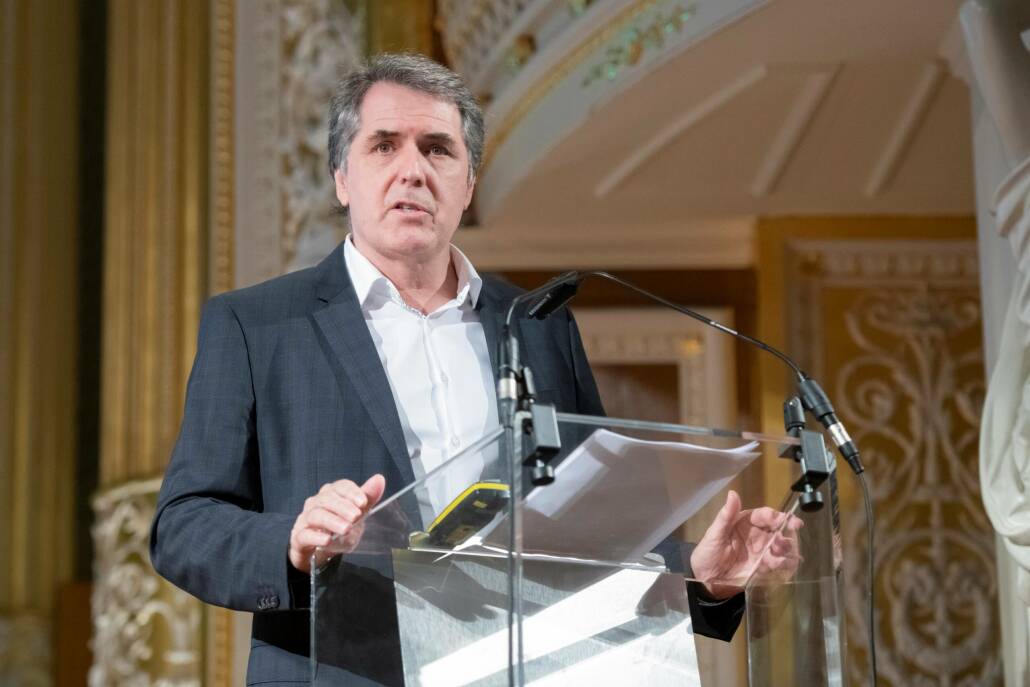Mayor recommends freezing Council Tax bill for fifth year running
- Mayor proposes freeze to precept in recognition of cost-of-living pressures on households
- Easing pressure on local councils with a below inflation rise in Transport Levy
- Budget will support investment in bus network and reaching net zero by 2040
Liverpool City Region Mayor Steve Rotheram has recommended to freeze the regional Council Tax precept for a fifth consecutive year to ease the ongoing cost-of-living pressure on local residents.
The Mayor has also announced proposals to invest in the region’s transport network, deliver bus franchising, create jobs and help achieve the region’s target to reach net zero by 2040 at the latest.

Steve Rotheram, Mayor of the Liverpool City Region
The budget, to be considered at next week’s Combined Authority meeting, acknowledges the pressures that inflation and high energy costs are placing on local residents, the public sector and the wider economy.
Steve Rotheram, Mayor of the Liverpool City Region, said:
“As Mayor, it’s my duty to ensure that every penny we spend not only delivers value for money, but positively impacts the communities I am so proud to represent. It’s not lost on me that households across our area have seen their budgets stretched to breaking point over the last few years and we’re continuing to do what we can to protect them from the worst excesses of the cost-of-living crisis, including freezing the council tax precept for the fifth consecutive year.
“Despite a challenging economic climate and 14 years of biting austerity, I’m confident that our region is moving towards a brighter future. From taking back control of our buses, to giving thousands of people the skills they need to get the jobs we are creating, and accelerating our transition to net zero – we’re diversifying our economy and investing in our people to put them in the best possible place to grow and thrive.”
Most council tax payers across the city region will pay a Band A Council Tax rate of £12.67 per year – around £1.05 per month.
Despite inflationary pressures particularly affecting bus services, the increase to the Transport Levy, paid by the local authorities to support operational transport activities, has been kept significantly below the level of inflation, with a 3% rise recommended. This is in recognition of the parlous state of local government finances after 14 years of central government cuts, which have disproportionately impacted areas in the Liverpool City Region.
Last year’s interventions saw bus fares capped at £2, support for households to write off more than £3m of personal debts and staging Eurovision in partnership with Liverpool City Council, which is estimated to have added £55m to the local economy.
Improving bus services is high on the agenda with £6.8m earmarked to support the move to take back control of the region’s bus network – which would give the public sector the power to determine routes, fares and timetables.
Delivering a franchised bus network is central to building the region’s London-style transport network, which includes £70m invested in active travel infrastructure, that will make travel faster, cheaper, cleaner and more reliable.
More than £46m has been earmarked to continue providing the most generous concessionary travel scheme outside of the capital. City region residents are entitled to receive their travel passes when they turn 60 – a full 7 years ahead of the national scheme. There are also discount schemes that help young people, apprentices and people with disabilities to benefit from fare reductions or to travel for free.
The coming year will see further investment across the region’s freeport and innovation Zone areas. It is hoped that these developments, at sites across the city region, will help to attract new inward investment and create well-paid, secure jobs for local people.
The budget also emphasises moves to help the city region reach its target to be net zero carbon by 2040, with ongoing investment in developing the Mersey Tidal Power project, and delivery of its housing retrofit programme, which is investing more than £100m in fitting energy efficient measures to around 10,000 homes. £350,000 is also identified to continue the Mayor’s Community Environment Fund for another year and a further £300,000 to support Wirral’s year in the cultural spotlight as Borough of Culture.
Ensuring that the region’s residents and businesses have the right skills to prosper continues to be a priority, with £54m expected to deliver adult education, and support for individuals in long-term unemployment via Households into Work.
The budget also identifies how the authority will ensure a balanced and sustainable budget in the years to come, while continuing to deliver on its priorities, with around £4m savings identified through modernising how the authority operates.
Latest News
Mayor launches ‘Merseyrail in Bloom’ initiative to make stations brighter, greener and more welcoming
Mayor announces £17m for first phase of new walking and cycling link for East Runcorn
Mayor unveils four-year blueprint for making the Liverpool City Region the best place to grow up, grow a family and grow a business
Mayor salutes city region’s ‘year of transformation’ as he eyes deeper devolution to ‘truly unleash potential’
Liverpool City Region Combined Authority to lead new regional Music Hub
